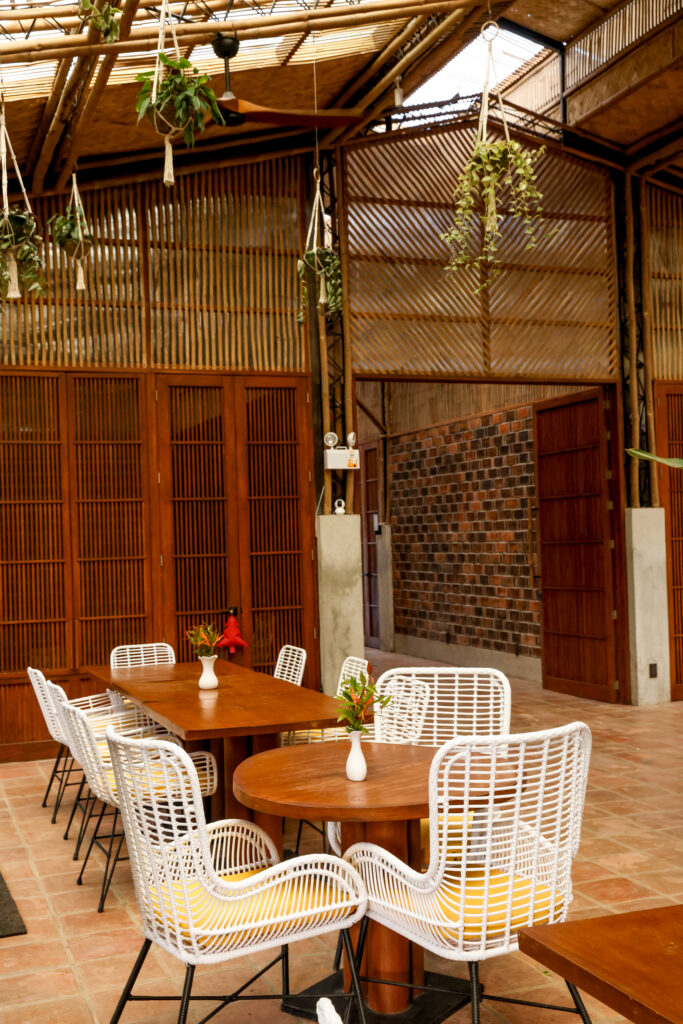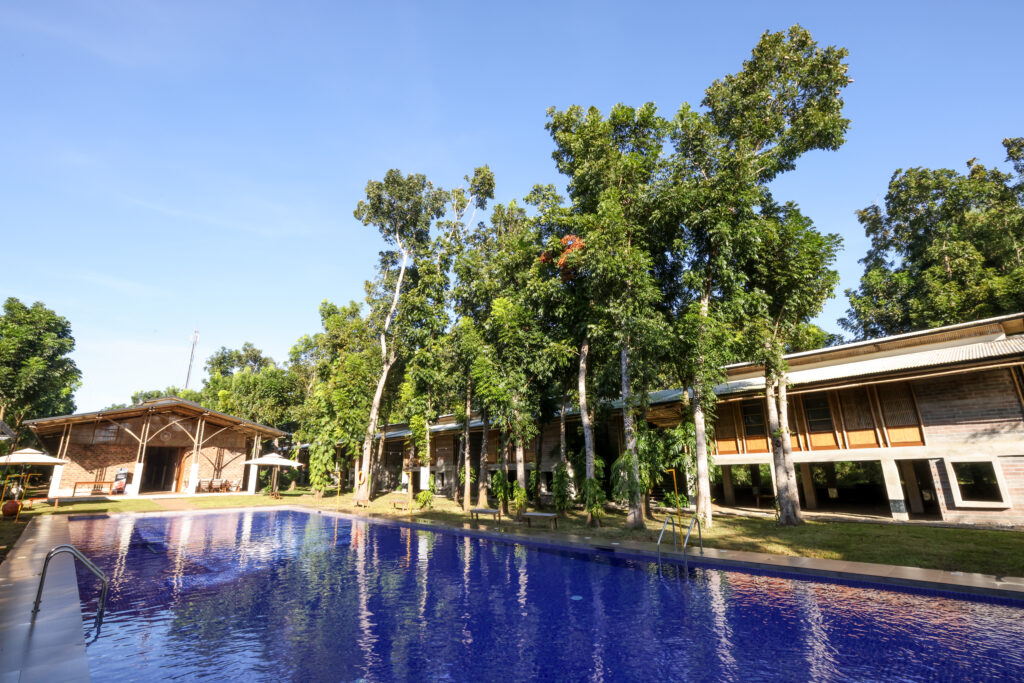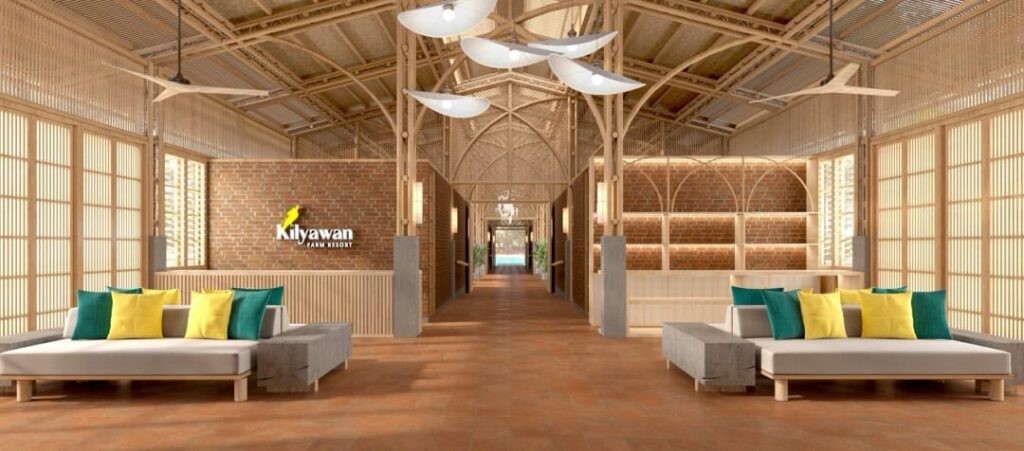In Ibaan, Batangas, lies a tranquil escape called Kilyawan Farm Resort, an idea born during the three-year pandemic.
With restrictions in place everywhere, the 8.5-hectare property provided its owners, the Ganzon family, more than enough space to commune with nature.
Kilyawan is situated inside Villa Vicenta Farms and is just a 90-minute drive from Manila via the South Luzon Expressway.
Vicenta, who was married to businessman Bienvenido Medrano, is the name of the maternal grandmother of the Ganzon girls running the resort. Medrano was the first in Ibaan to establish various large companies — Ibaan Electric Corporation, Bangko Kabayan and California Manufacturing Company, makers of Lady’s Choice and Monterey Farm — which provided employment and services to the people.
Francis and Tess Ganzon, the latter being the daughter if the Medramos, lived in the farm for 20 years while their daughters were pursuing their careers. It was during the lockdown when three of their daughters – Tina, Fiddy and Ces — rediscovered farm living along with their husbands and children.
They wanted to share their experience with everyone, starting with the community, as they took turns running, walking and biking in the orchard, mask-free. Thus began Kilyawan, the farm resort.
Harvest of the earth

The local black-naped oriole (kilyawan) may have been the first to find the space a safe haven, as they flock to the place that now beckons to people seeking nature’s embrace.
To explore the orchard, the resort offers a day tour where guests can hop onto the tractor or go on foot for a brief interaction with native farm animals. The farms grows various fruit trees, plants and vegetables but its three main products are cacao, golden queen mangoes and bamboo.
Thousands of BR-25 cacao trees are scattered and harvested all year round on the property. The pods are reddish when still young and yellowish as they mature. Farm workers harvest ripe pods every week and ferment them for seven days. Fermentation helps develop the flavor of the beans, which are then sundried for one week. The beans are then taken to Sto. Tomas processing center where they are made into tablea.
The perimeter of the farm is surrounded by several varieties of bamboo. There are around 200 bamboo clumps in this eight-hectare property and around 1,000 poles were harvested and treated to fulfill the needs of the project.
There are over 100 golden queen mango trees planted on the property, also called Taiwan’s best mango weighing approximately one kilogram. The biggest piece the farm has produced weighed over two kilograms.
Farm-to-table delights
Kilyawan has a farm-to-table restaurant that serves satisfying dishes and chilled drinks made with produce freshly picked from the farm and other locally sourced ingredients. Most of the vegetables being served also come from the farm’s organic vegetable garden.
Tablea is used for the champorado, and the brownie skillet served in the restaurant. The golden queen mango is used for salad, shakes and mango dressing. For mangoes that are not perfect, they process them into mango jam, dried mangoes and pickled mangoes. Those that don’t pass for processing are fed to native black pigs. Lanzones, avocado, papaya, rambutan, pomelo, coconut, sinturis and other fruits also grow in the property.
The current population of native black pigs is around 50, being fed with camote tops or fruits and vegetables that are not good enough for selling. This breed produces less fat, resulting in tastier meat and crispier skin as lechon.
Various breeds of free-range chickens, such as Rhode Island Red, Australorp, Sasso and native chicken are also on the property. Last year, they started reproducing to produce organic eggs.
Natural beauty
Sustainability is the pillar throughout Kilyawan’s structures as it showcases the use of natural, local and upcycled materials. The Ganzons used to be contract growers for a food corporation and had poultry houses that used to hold 55,000 chickens.
Kilyawan Farm Resort, designed by architect Dominic Galicia, now houses seven cozy cabins and one expansive master villa for guests who want to slow down and savor farm living.

The cabin is something that was imagined only three years ago, but the structure is more than 30 years old. The skeleton of the building used the original steel trusses of the poultry houses. The stairs leading to the cabin are made of mahogany and old wood all from the farm and existing buildings. The terracotta tiles were purchased from Vigan Ilocos Sur. The window walls are made out of bamboo harvested from the farm.
The cabin ceiling is made of banig, traditionally used as sleeping mats. They were woven by women entrepreneurs from the municipality of Tingloy, a small island in Batangas. The walls of the cabin are made out of eco-bricks produced by Green Antz, a circular economy and innovation group known for collecting used plastic. They turn them into pellets and mix them with other elements to produce an eco-brick. The bricks in building two were locally manufactured in the town of San Juan.
In the resort are vibrant green and yellow pillowcases handwoven by women of the Ibaan Sunrise Weavers Association.History remembers Ibaan as the ‘Kulambo Capital of the Philippines’ where mosquito nets are skillfully handwoven by local women.
The centuries-old craft Habing Ibaan placed the town on the map when it started supplying 90 percent of mosquito nets in the country. In 1949, Ben Medrano established the largest mosquito net factory in Ibaan, Superior Textile Mills.
From the local SM Sunrise Weaving Association to the regional Handloom Weaving Innovation Center and the very first weaving community in the Calabarzon region, the small group of women sharing the same hobbies grew.
All the furniture in the resort are custom-made and manufactured by local companies, mostly social enterprises. Because of its uniqueness and symbolism, the highlight of the cabin is the wooden Kilyawan Bird perched on top of the bed railings.
In English terms, the black-naped oriole is a perching bird found in many parts of Asia. They have a very distinct sound, loud but not annoying, and can be seen flying from one tree to another in the farm that bears their name, in the early mornings or late afternoons.
